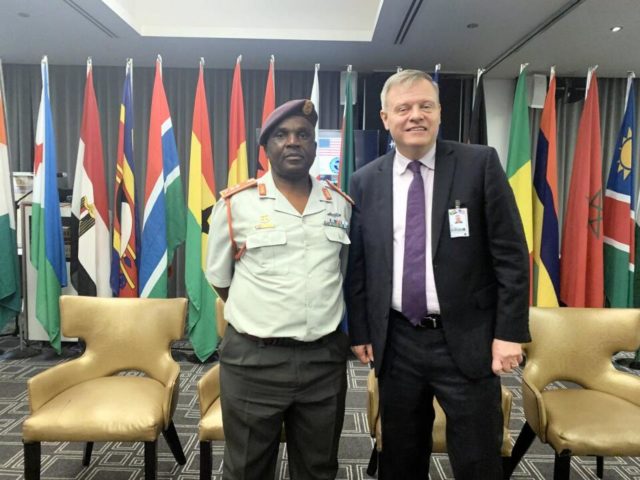Adjutant-General of the SANDF Major-General Eric Mnisi said sexual misconduct by deployed troops, especially in the DRC, had become a huge embarrassment.
Pretoria – The wave of sexual misconduct and abuse claims against deployed troops is a thorn in the side of the SANDF.
This was highlighted during the seventh Accountability Colloquium conference in the capital city attended by 80 delegates from 30 African nations.
South Africa co-hosted the Accountability Colloquium conference with the United States of America Africa Command members, a specialised conference on military operations for African military commanders, chiefs of staff and legal advisers throughout the continent.
The annual conference discusses legal issues and the importance of operational commanders seeking advice from their legal advisers to ensure adherence to the rule of law.
Adjutant-General of the SANDF Major-General Eric Mnisi said sexual misconduct by deployed troops, especially in the DRC, had become a huge embarrassment for the humanitarian sector. “One of the challenges we are facing is sexual exploitation and abuse. This is not necessarily rape, but basically troops having consensual sexual relations with the locals, like in the case of the DRC,” he said.
“That is forbidden by the UN, but unfortunately our colleagues fall in love with the locals and this compromises the mission at hand.”
Mnisi said this was of great concern because not only were soldiers sidetracked from and softened in their approach to their mission, but they also left children in those countries.
“Who is going to maintain them? We are dealing with paternity issues to make sure children that we leave behind in deployment areas are well looked after, just like those we have here at home.”
Deputy legal counsel to the United States Africa Command Mark Maxwell said this was what the three-day conference sought to bring forth. He said they would also discuss ways to tackle numerous issues in the military within the confines of the law.
He reiterated that the military relationships between the legal advisers and commanders ensured operations were conducted in accordance with the law.
“The hope is to bring commanders and legal advisers together to talk and grapple with some of the issues they face, not only within combat, but also within garrison.
“It is also to make sure that the force which we are dealing with, regardless of the nation, is one that is trained, disciplined and understands what the rule of law dictates,” Maxwell said. “A soldier has to be disciplined and focus on the mission. Fraternisation has a corrosive effect on the ability of that commander to carry out his or her mission,” he said.
Discussions throughout the conference were tempered with realism, as participants weighed new ideas with an understanding of military justice.
The attendees brought with them an impressive array of prior experiences to help define a better understanding of African military operations subject to the rule of law in Africa.
Other discussions included current legal challenges, the importance of adherence to the rule of law, and the positive impact of legal advisers.
Mnisi said he hoped that by 2025 the Military Discipline Bill became a law, which basically meant that soldiers found guilty of sexual misconduct would be sentenced to a maximum of 10 years.
“But currently they go through a disciplinary hearing, and a maximum of two years in prison,” he said.
Last year Defence and Military Veterans Minister Nosiviwe Mapisa-Nqakula launched a task team to investigate cases of sexual exploitation and abuse in the SANDF.
Mapisa-Nqakula said the ministerial task team would investigate the reporting, management and finalisation of sexual offence cases.
The team is led by Commission on Gender Equality deputy chairperson Thoko Mpumlwana and has three other members – Correctional Services manager Britta Rotmann, retired Major-General Daphne Nodola and former Commission for the Promotion and Protection of the Rights of Cultural, Religious and Linguistic Communities chairman Mongezi Guma.
The decision to investigate at a high level the sexual misconduct followed the UN threatening the expulsion of SA peacekeeping troops from the DRC when allegations emerged that soldiers sexually abused women there.
Pretoria News








